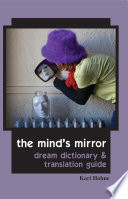

Reflection is a crucial process that allows individuals to analyze their thoughts, actions, and experiences. In 'The Mind's Mirror,' the author emphasizes the importance of taking time to reflect on one's decisions and behaviors. This introspective practice can lead to deeper self-awareness and personal growth. By examining past experiences, individuals can identify patterns, understand their motivations, and make more informed choices in the future. The book provides various techniques for effective reflection, such as journaling and meditation, which can help readers integrate this practice into their daily lives. Reflection not only enhances personal development but also improves decision-making skills and emotional intelligence.
Continue readingMindfulness is a central theme in 'The Mind's Mirror,' as it encourages readers to be fully present in their lives. The author discusses how being mindful can lead to greater clarity of thought, reduced stress, and improved overall well-being. The book outlines practical exercises for cultivating mindfulness, such as focused breathing and sensory awareness. By incorporating mindfulness into daily routines, individuals can enhance their focus and productivity, making them more effective in both personal and professional settings. The author argues that mindfulness is not just a practice but a way of life that can transform how we interact with ourselves and the world around us.
Continue readingEmotional intelligence (EI) is highlighted as a vital component of personal and professional success in 'The Mind's Mirror.' The author explains that EI encompasses the ability to recognize, understand, and manage our own emotions, as well as the emotions of others. The book outlines the five key components of EI: self-awareness, self-regulation, motivation, empathy, and social skills. By developing these skills, individuals can improve their relationships, enhance their leadership abilities, and navigate complex social situations more effectively. The author provides actionable strategies for enhancing EI, such as active listening and empathetic communication, making it an accessible concept for readers looking to improve their interpersonal interactions.
Continue readingAdopting a growth mindset is a recurring theme in 'The Mind's Mirror.' The author explains that a growth mindset is the belief that abilities and intelligence can be developed through dedication and hard work. This perspective fosters resilience and a love for learning, which are essential for personal and professional growth. The book contrasts a fixed mindset, where individuals believe their abilities are static, with a growth mindset, which encourages embracing challenges and learning from failures. The author provides practical tips for cultivating a growth mindset, such as embracing challenges, seeking feedback, and viewing failures as opportunities for learning, making this concept particularly relevant for those looking to advance in their careers.
Continue readingEffective goal setting is a key focus of 'The Mind's Mirror,' with the author outlining the importance of setting clear, achievable goals to drive personal and professional success. The book introduces various goal-setting frameworks, such as SMART goals (Specific, Measurable, Achievable, Relevant, Time-bound), which help individuals articulate their objectives clearly. The author emphasizes the need for both short-term and long-term goals, as well as the importance of regularly reviewing and adjusting these goals as circumstances change. By providing practical strategies for goal achievement, the book empowers readers to take control of their futures and work systematically toward their aspirations.
Continue readingResilience is presented as a critical trait for navigating life's challenges in 'The Mind's Mirror.' The author discusses how resilience enables individuals to bounce back from setbacks and maintain a positive outlook in the face of adversity. The book outlines various strategies for building resilience, such as developing strong social connections, maintaining a positive mindset, and practicing self-care. By fostering resilience, individuals can better cope with stress and uncertainty, enhancing their overall well-being and ability to thrive in both personal and professional contexts. The author provides examples and exercises to help readers strengthen their resilience, making it a practical and actionable concept.
Continue readingThe final key idea in 'The Mind's Mirror' is the interconnectedness of mind and body. The author argues that mental and physical health are deeply intertwined, and that nurturing both aspects is essential for overall well-being. The book explores the impact of physical health on mental clarity and emotional stability, emphasizing the importance of regular exercise, proper nutrition, and adequate sleep. The author provides practical tips for integrating healthy habits into daily life, such as setting aside time for physical activity and practicing stress-reduction techniques. By highlighting this connection, the book encourages readers to adopt a holistic approach to health and wellness.
Continue readingThe reading time for The Mind's Mirror depends on the reader's pace. However, this concise book summary covers the 7 key ideas from The Mind's Mirror, allowing you to quickly understand the main concepts, insights, and practical applications in around 25 min.
The Mind's Mirror is definitely worth reading. The book covers essential topics including The Power of Reflection, Mindfulness and Presence, The Role of Emotional Intelligence, providing practical insights and actionable advice. Whether you read the full book or our concise summary, The Mind's Mirror delivers valuable knowledge that can help you improve your understanding and apply these concepts in your personal or professional life.
The Mind's Mirror was written by Kari Hohne.
If you enjoyed The Mind's Mirror by Kari Hohne and want to explore similar topics or deepen your understanding, we highly recommend these related book summaries:
These books cover related themes, complementary concepts, and will help you build upon the knowledge gained from The Mind's Mirror. Each of these summaries provides concise insights that can further enhance your understanding and practical application of the ideas presented in The Mind's Mirror.